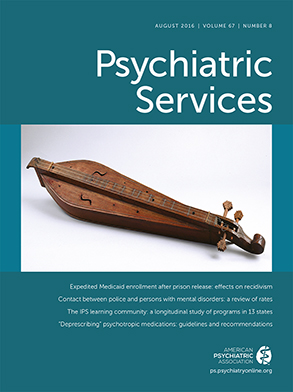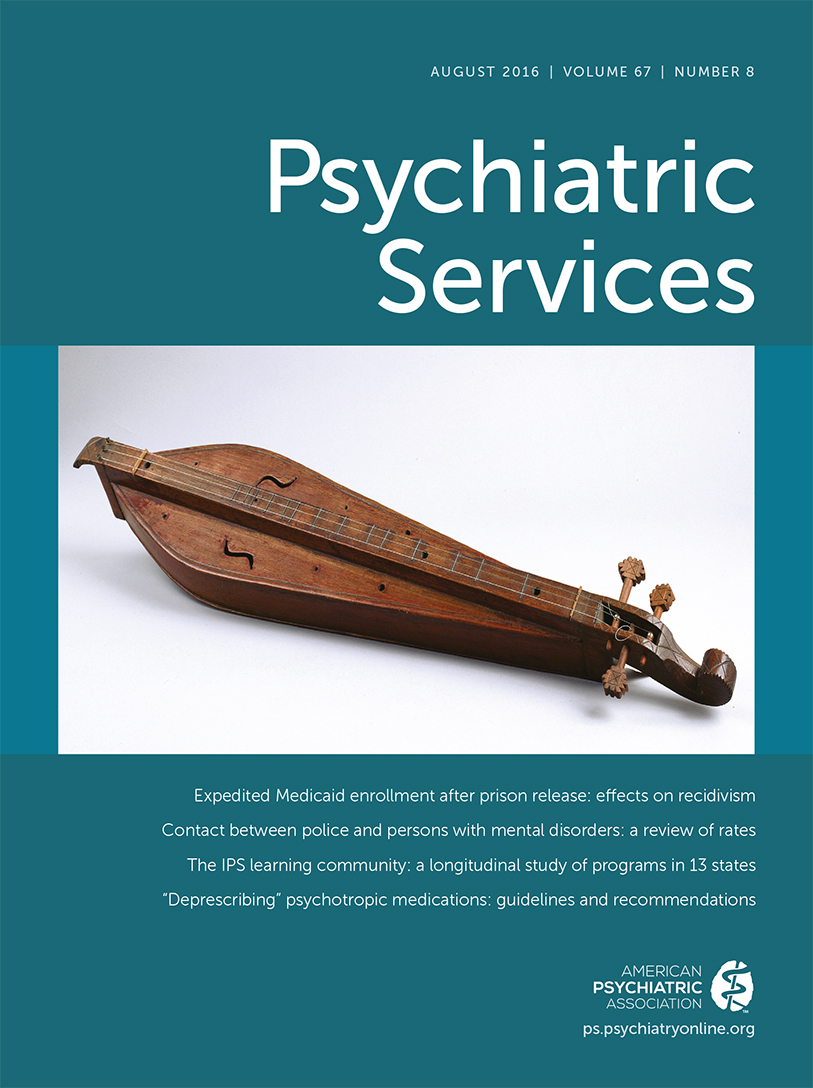TO THE EDITOR: The problem of boredom among persons with psychiatric problems may be an impediment to meaningful social integration and recovery (
1). Boredom is defined as a subjectively unpleasant state arising from situations construed as monotonous in which individuals may experience a disconnection from the social world (
2); it should be distinguished from negative symptoms (
3). Research on boredom in psychiatric populations is underdeveloped (
2) and has excluded the perspectives of Latinos with schizophrenia. Our practice and research experiences have corroborated the ubiquitous nature of boredom as a legitimate problem among persons with schizophrenia. We report here on data from qualitative interviews conducted with 13 Latinos with a diagnosis of schizophrenia. The data are part of a larger study to determine the effectiveness of an educational intervention to improve the informed consent process. Boredom emerged as a salient theme related to research participation. The study was approved by the University of California, San Diego, Institutional Review Board and the San Diego County Mental Health Services Research Committee. A grounded theory approach was used for qualitative analysis of transcribed interviews.
Participants were Latinos of Mexican origin. More than half of the 13 participants were women (N=7, 54%), and most participants preferred using the Spanish language (N=11, 85%). The average age was 47.7±9.6. Most participants (N=10, 77%) lived with family or others.
As participants noted in their interviews, participation in research represented social interaction, engaging in conversation with “normal people,” and having the opportunity “to learn something.” Participants’ statements that they were “just sitting here” and that “there’s nothing to do” summed up the sentiment that participation in research offered a break from the monotony and tedium of everyday life. Such concerns existed across service settings and types of living situations. Social interaction and learning new information and skills emerged as prominent strategies to address boredom. A previous board-and-care resident, who now lives with family and participates in clubhouse activities, stated, “I just go from here [home] to the club, back and forth, back and forth.” Her phrasing implied monotony and a lack of fulfillment in the routine of her everyday life. Boredom was described as having “a lot of free time.” Participation in research was “better than being in the room all day.” Solitary and sedentary experiences characterize how the participants spent most of their time in board-and-care homes. As one interviewee stated, “Look at what they do . . . smoking. That’s their free time.”
Boredom was tied to a lack of meaning in the lives of participants. Because more than half lived with family and experienced persistent boredom, it is important to note that the personal and social needs of Latinos with schizophrenia cannot be entirely or adequately met within the family system. The opportunity to participate in research offered a break from monotony and daily boredom. In this respect, boredom may function as a motivator of change (
4) and signal a readiness to engage in social opportunities that appeal to individual preferences and awaken a sense of purpose.
Acknowledgments
The authors thank the participants and community advisory board members who took part in this study.

